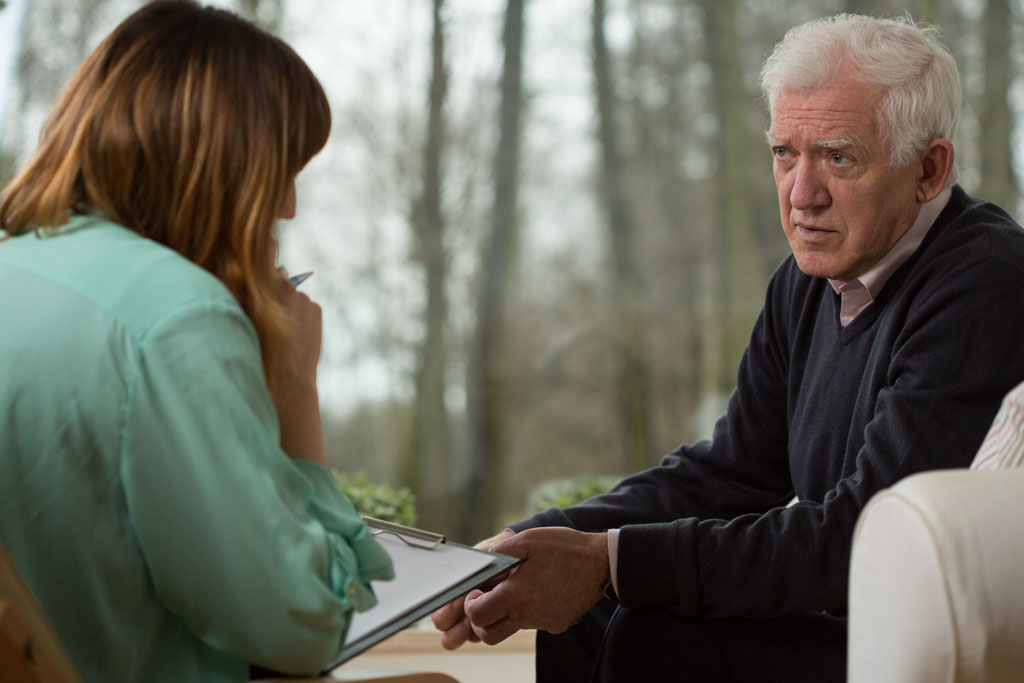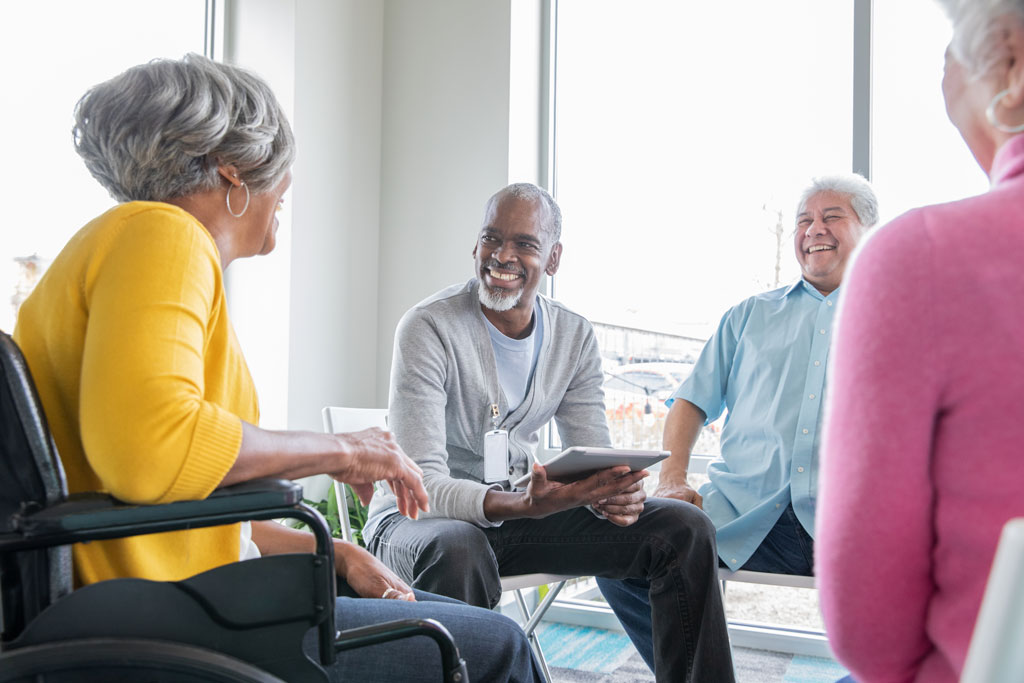We Are Here To Help
There’s Always Another Option. ♡
- © Copyright 2025 Alternative Options Counseling Center, Inc | Site Map
Learn about anxiety symptoms and anxiety treatment for elderly individuals. Get help at Alternative Options.
Home - Anxiety & Depression - Treatment Options for Elderly Individuals Struggling with Anxiety
As we age, it’s natural for our bodies and minds to change. For some older adults, anxiety can become a debilitating condition that affects their quality of life. While anxiety is a common mental health condition that affects all ages, it can present different challenges for older populations. Fortunately, there are a variety of options for anxiety treatment for elderly individuals.1
This article will explore some of the most common types of anxiety treatment for elderly individuals, including medication, therapy, and alternative approaches. We will also look at symptoms and causes of anxiety disorders in older adults.

Let us guide you through your options and treatment opportunities. Contact Alternative Options today.
According to the Anxiety and Depression Association of America, Generalized Anxiety Disorder (GAD) affects 6.8 million adults or 3.1% of the U.S. population. Women are twice as likely to be affected as men.3 The World Health Organization estimates that 264 million adults around the globe have anxiety. The CDC also states that 27.3% of Americans over 18 years have anxiety.
According to a study published in the Journal of Anxiety Disorders, the prevalence of anxiety disorders in older adults ranges from 3% to 14%. The most common type of anxiety disorder diagnosed in older adults is Generalized Anxiety Disorder (GAD).
The symptoms of anxiety can present differently depending on the person and on the severity of the condition.
Common symptoms of mild anxiety are:
People experiencing moderate anxiety might experience any of these symptoms:
Symptoms of severe anxiety include:
Everyone experiences anxiety differently. Some people with anxiety disorders may have different symptoms than those listed above.
Anxiety becomes a problem when it is excessive and interferes with daily life. An anxiety disorder can be characterized by excessive worry, fear, or dread. It can also manifest as physical symptoms such as:
An anxiety disorder can also lead to avoidance behaviors. This is when individuals try to avoid situations or activities that trigger their anxiety.
Anxiety is a common mental health concern for older adults, just as it is for any age group. Unhealthy anxiety levels can have a significant impact on any individual’s overall well-being. Here are some ways that anxiety can impact older adults:4
Several factors can contribute to increased anxiety in older adults, including:
It’s important to note that anxiety can occur at any age, and there is not one specific cause of anxiety in the elderly population. If you or a loved one are an older adult experiencing higher anxiety levels, it is important to get help. Ask for anxiety treatment for elderly individuals from a healthcare professional to determine the underlying cause of anxiety and develop a treatment plan.
Anxiety treatment for elderly individuals can involve a variety of approaches. It depends on the severity of the anxiety, the individual’s overall health, and if there are any underlying medical conditions.
Psychotherapy, medication, lifestyle changes, and other activities are all standard types of anxiety treatment for elderly individuals.5
Psychotherapy or talk therapy is an effective anxiety treatment for elderly individuals. It involves working with a mental health professional to identify and address the underlying causes of anxiety.
This can involve cognitive behavioral therapy (CBT), which focuses on changing negative thought patterns and behaviors. It can also involve other forms of therapy, such as:
Another anxiety treatment for elderly people is medication. A doctor may prescribe anti-anxiety medication to alleviate symptoms. Common medications include benzodiazepines and antidepressants. However, clinicians should closely monitor medication taken by older adults. They may be at a higher risk for side effects or unwanted interactions with other medicines.
An underrated anxiety treatment for elderly individuals is lifestyle change. Simple lifestyle changes such as exercising, eating a healthy diet, and getting enough sleep can help reduce symptoms of anxiety in older adults.
Joining a support group can allow older adults to connect with others experiencing similar challenges. Support groups can provide emotional support and meaningful connections. This option is a dependable anxiety treatment for elderly individuals.
Complementary therapies can also be an effective anxiety treatment for elderly individuals. Acupuncture, massage therapy, and yoga can help older adults reduce anxiety symptoms. These are optimized when used in conjunction with other treatments.
Mindfulness-based interventions is another kind of anxiety treatment for elderly individuals that can help reduce symptoms. They include mindfulness-based stress reduction (MBSR) and mindfulness-based cognitive therapy (MBCT). These approaches involve practicing mindfulness techniques to help manage anxious thoughts and feelings.

Anxiety can be difficult to live with; fortunately, there are many anxiety treatment options available. It is essential to carefully research and choose a reputable counseling center for anxiety treatment for elderly individuals. Treatment should be tailored to each person’s specific needs and unique medical history.
Always work with a healthcare professional to determine the most appropriate treatment options. Your primary care provider can be a great place to start looking for anxiety treatment for elderly individuals. You can also research counseling centers on your own.
You can find help at Alternative Options. We use individually-tailored and proven methods for treatment. Our team of trained therapists, certified counselors, and psychiatrists provides individualized support in a friendly environment.
We offer a variety of options for anxiety treatment for elderly individuals, including:
If you or a loved one are suffering from anxiety, reach out today. Your journey to a better life can begin now.
Serving Los Angeles and Orange County Areas
We Are Here To Help